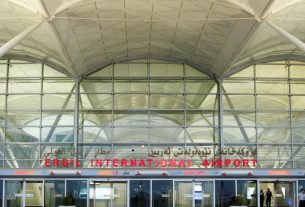United Nations human rights experts have highlighted “widespread and systematic” exploitation, deception, and deepening debt bondage of Bangladeshi workers in Malaysia.
Over 800,000 Bangladeshis have Malaysian work permits, making them the largest group of documented foreign workers in the country. According to information received by the UN, thousands of workers are stranded in Bangladesh or face exploitation in Malaysia after some paid recruitment fees five times higher than the official rate.
Other abuses, including confiscation of passports by Malaysian employers, false job promises, discrepancies between contracts and promised employment packages, and a lack of support from responsible government agencies, are common in Malaysia.
Workers without proper documentation are at risk of arrest, detention, ill-treatment, and deportation under Malaysia’s draconian immigration act, which criminalizes irregular entry, and other anti-migrant policies. Malaysian authorities conduct frequent immigration raids and hold an estimated 18,000 migrants, refugees, and asylum seekers in immigration detention centers.
The United States has previously issued import restrictions against Malaysian factories. Meanwhile the European Union’s Forced Labour Regulation, taking effect in 2027, introduces curbs on the trade of goods produced with forced labor. Debt bondage and deception of workers could lead to prohibitions on the sale of sanctioned goods under the new regulation.
The Bangladeshi and Malaysian governments, as well as those of other labor-sending or receiving countries and those where buying companies are headquartered such as the US, EU members, and the United Kingdom, have obligations to ensure labor migration is conducted in a way that protects workers’ rights. Malaysia and labor-sending governments like Bangladesh should implement the UN experts’ call to promptly investigate reported abuses and provide effective remedies. The experts emphasized that “involuntary repatriations and any form of reprisals” against migrant workers violate international human rights obligations.
International buyers sourcing from Malaysia should use the Fair Labor Association’s Guidance for Responsible Recruitment for companies as a model. The guidance urges buyers to “include costs of responsible recruitment in their purchasing metrics” and ensure that their suppliers include those costs in their invoicing. Buyers should also support migrant workers’ access to legal aid.
Bangladesh and Malaysia should end mistreatment of migrant workers. All governments whose economies benefit from migrant workers’ labor should avoid the risk of further sanctions by taking steps to end practices that cause misery to thousands.



